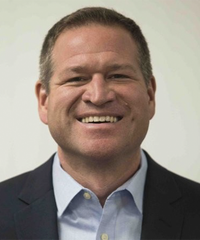March 21, 2023

On the heels of the COVID-19 pandemic and all the craziness it caused at retail, independents are now grappling with rising wholesale costs, consumer wallet-tightening and other inflationary pressures. Though experts may debate whether the U.S. is technically in a recession, most expect the less-than-favorable economic climate to persist for some time.
Given that, how can independents weather the storm and continue thriving in 2023? Here, a renowned data analyst, a longtime retail leader and an experienced natural products broker and consultant share their top suggestions.
Market data analyst
Krishnak umar Davey, Ph.D., president of CPG and retail thought leadership at IRI in Chicago, Illinois
umar Davey, Ph.D., president of CPG and retail thought leadership at IRI in Chicago, Illinois
Don't panic. Despite all the talk of recession, the data show quite a bit of resilience in the grocery industry. Consumers may be buying less general merchandise—cars, computers, lawn furniture—but eating is a necessity and, thus far, there has been little reaction to the 10% to 13% price increases for food. This makes sense because, in a recession, consumers typically increase their at-home food consumption. Also consider that, unlike the 2008 recession, today there is wage growth and still 1.7 jobs available, on average, for every American. For these reasons, I don't pay much attention to fears about a recession for this industry. Natural products retailers should be just fine in 2023.
Prioritize perimeter. Inflation is hitting center-store items such as soda and chips much harder than perimeter products. In other words, prices on produce and other fresh, healthy foods aren't increasing as much as prices on packaged items. This provides a great opportunity for natural products retailers, who already differentiate themselves by offering better-quality tomatoes, lettuce and apples. They can highlight that from-scratch cooking with quality ingredients is cheaper than packaged meals, especially in the current environment. Plus, our research shows that consumers become extra careful about their health during recessions, eating healthier and buying less junk food.
Lean into lunch. The work-from-home trend is proving more durable than once predicted. Now we expect 20 million to 40 million workers to continue working remotely this year, at least for part of the week. That trend, coupled with the higher costs of eating out, makes lunchtime a big opportunity for natural products retailers. While breakfast and dinner have both grown in terms of at-home eating, lunch has grown the most. Because of that, retailers should promote grab-and-go items and ingredients to make lunches as a way to drive revenue this coming year.
Retailer
Justin Jackso n, chief operating officer at Jimbo's Naturally in San Diego, California
n, chief operating officer at Jimbo's Naturally in San Diego, California
Slow your roll. Because we're just coming out of a pandemic, it's difficult to use the traditional review periods, such as the prior year and maybe the year before, to assess year-over-year results or shopper behavior. Are certain sales metrics or changes in shopping patterns due to inflation, or are they mostly because of the pandemic? It can be tough to know for sure, so keep that in mind before altering your strategy in response to the current economic conditions. And no matter what, don't keep shifting strategies. If you do, you'll just confuse your team and your customers. Take time to understand what strategy will likely work best for you and give it a chance to play out.
Price fairly and consistently. In an inflationary environment, a retailer could assume that shoppers just expect higher prices so they'll accept whatever price increase the store implements. But if you raise prices really high, and your customers don't see that same pattern exhibited elsewhere, it'll stand out. At Jimbo's, we'll never take advantage of rising costs to go after an opportunity at retail—that's just not who we are. We recognize that prices will go up as costs go up, but we try to be extremely fair about that. It's important to have a very defined pricing policy, to be consistent with how you address wholesale cost increases at retail. Over time, customers will see that you're being fair and not taking advantage of the situation, and that builds trust.
Take care of your team. We have wage inflation and a whole new dynamic to how the job market works, so staffing is probably the most challenging element of the current environment. Historically, it was very unusual for someone to not show up for a job interview, but now that's a constant. Therefore, the most important thing you can do is take care of your team. Your team is an investment, not an economic lever. Be as close to and as in tune with them as possible and find out what they need to succeed. Because if you're going to ask your team to do something, you've got to know what they need—or what their perspective is on what they need—to achieve the goals you've set.
Broker and consultant
 Andrew Fleming, senior vice president of natural channel sales at Acosta–Impact Group Natural in Westmont, Illinois
Andrew Fleming, senior vice president of natural channel sales at Acosta–Impact Group Natural in Westmont, Illinois
Work with brand partners. During tough economic times, there's a tendency to think consumers make this huge pendulum swing over to private label because it costs less, leading retailers to push private label. But with consumers eating at home more, they want high-quality ingredients. Maybe they can't afford to dine at an expensive Italian restaurant, but if they buy a premium pasta and sauce, they can re-create a similar meal for a fraction of the price. So, rather than assuming that nobody wants to go over a certain price point on olive oil, for instance, and then cheapening endcaps with private label, work with your brand partners and brokers to get the best possible pricing, and then celebrate and display those items. If you can offer good prices on branded staples, most consumers will stay with their favorite brands.
Continue customer-acquisition efforts. Flyers, mailers, coupons and other marketing tools may seem like easy things to cut to save money right now, but this is not the time to curtail efforts to draw in new customers. With inflation, more at-home eating and more people working from home, every shopper demographic is buying less per trip—which means you need more customers! Keep enticing them. Also, many consumers are making fewer trips to the store, meaning you have fewer chances to impress them, so you really need to be spot-on with the cleanest store, freshest produce and most vibrant displays. Maybe don't spend six figures on a renovation, but don't abandon needed updates, upgrades and refreshes.
Stay true to you. Every retailer has difficult choices to make when economic conditions are hard. But be very careful not to abandon your mission, philosophy or heritage and denigrate the experience for consumers. Your business was built upon a set of principles, so stay true to those principles. Once you start to change who you are and what you do, then when we get to better economic times, it's very tough to come back from that. You'll have lost some credibility and customers along the way.
About the Author
You May Also Like
.png?width=700&auto=webp&quality=80&disable=upscale)



